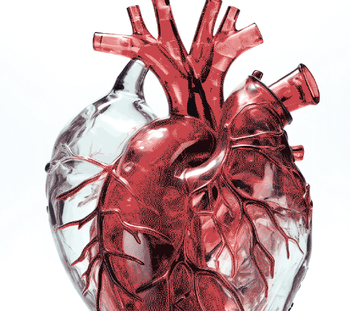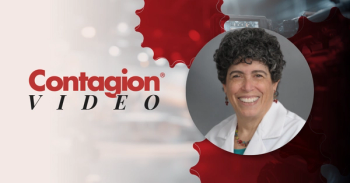
- October 2018
- Volume 3
- Issue 5
Early Adjunctive Corticosteroids Do Not Improve Outcomes in HIV-Negative Adults With PcP
The clinical characteristics and outcomes of Pneumocystis jirovecii pneumonia differ in immunocompromised patients with and without HIV.
The clinical characteristics and outcomes of Pneumocystis jirovecii pneumonia (PcP) differ in immunocompromised patients with and without HIV.1-2 Although evidence suggests improved survival with early adjunctive corticosteroids in patients with HIV and PcP,3-4 limited data for HIV-negative patients with PcP suggest adjunctive corticoste­roids might not improve outcomes.1,2,5,6
Wieruszewski et al evaluated the impact of early cortico­steroids as an adjunct to anti-PcP therapy in acutely ill immu­nocompromised adults without HIV.3 Outcomes of patients who received early corticosteroid therapy (within 48 hours of PcP diagnosis or therapy) were compared with those who did not.
Among the 323 patients in the study (early steroids, n = 258; nonearly steroids, n = 65) the median age was 65 years; 63% were male; 92% were white; 97% had immunosuppressive disease (hematologic malignancy 50%), and 60% had a history of immunosuppressive therapy prior to hospi­talization. Patients received appropriate anti-PcP therapy (primarily sulfamethoxazole/trimethoprim) and a median dose of prednisone 60 mg daily.
Severity-adjusted (for baseline hypoxemia) regression and propensi­ty-matched analyses found that administration of steroids was associated with less improvement in the early group than the nonearly group at day 5, with a mean ΔSOFAresp difference of —0.47 (95% CI, –0.73 to –0.21; P = .001) and —0.46 (95% CI, –0.84 to –0.08; P = .017), respectively. No differences were observed in the odds of having at least a 1-point improvement in SOFAresp at day 5 compared with baseline between groups (adjusted OR, 0.76 [95% CI, 0.24-2.28]; P = .61). No differences in mortality, length of stay, admission to the ICU, or need for mechanical ventilation were found between early and nonearly steroid recipients.
This is the largest study to date on HIV-negative patients with PcP. Although this study was nonblinded, nonrandomized, and retrospective, the use of multivariable adjustments and propensity-matched cohort analyses confirmed the results of previous studies that found no observable benefit of early steroids in patients with PcP who are HIV-negative. The authors speculated that differences in patients with PcP who are HIV-negative versus those who are positive “may be due to a reduced response among those with earlier exposure to corticosteroids immediately preceding PcP presentation.”
Clinicians should reevaluate routine adjunctive steroid therapy for patients with PcP who are HIV-negative in the absence of other compel­ling indications for receiving steroids. Robust randomized prospective studies are warranted to further explain the pathophysiological differences in immune status that predispose patients who are HIV negative to intensified inflammatory response to PcP antimicrobial therapy and their ability to respond to anti-inflammatory agents.
References:
- Moon SM, KimT, Sung H, et al. Outcomes of moderate to severe Pneumocystis pneumonia treated with adjunctive steroid in non-HIV-infected patients. Antimicrob Agents Chemother. 2011;55(10):4613-4618. doi: 10.1128/AAC.00669-11.
- Lemiale V, Debrumetz A, Delannoy A, Alberti C, Azoulay E. Adjunctive steroid in HIV-negative patients with severe Pneumocystis pneumonia. Respir Res. 2013;14:87. doi: 10.1186/1465-9921-14-87.
- The National Institutes of Health—University of California Expert Panel for Corticosteroids as Adjunctive Therapy for Pneumocystis Pneumonia. Consensus statement on the use of corticosteroids as adjunctive therapy for pneumocystis pneumonia in the acquired immunodeficiency syndrome. N Eng J Med. 1990;32(21):1500-1504. doi: 10.1056/NEJM199011223232131.
- Ewald H, Raatz H, Boscacci R, Furrer H, Bucher HC, Briel M. Adjunctive corticosteroids for pneumocystis jiroveci pneumonia in patients with HIV infection. Cochrane Database Syst Rev. 2015;(4):CD006150. doi: 10.1002/14651858.CD006150.pub2.
- Injean P, Eells SJ, Wu H, McElroy I, Gregson AL, McKinnell JA. A systematic review and meta-analysis of the data behind current recommendations for corticosteroids in non-HIV-related PCP: knowing when you are on shaky foundations. Transplant Direct. 2017;3(3):e137. doi: 10.1097/TXD.0000000000000642.
- Wieruszewski PM, Barreto JN, Frazee E, et al. Early corticosteroids for Pneumocystis pneumonia in adults without HIV are not associated with better outcomes [published online April 26, 2018]. Chest. doi: 10.1016/j.chest.2018.04.026.
Articles in this issue
Newsletter
Stay ahead of emerging infectious disease threats with expert insights and breaking research. Subscribe now to get updates delivered straight to your inbox.



































































































































